Serbian Special Forces poster © Serbian Ministry of Defense
How can you tell the difference between an arrest and a kidnap? An easy question, you might think. Not on the border between Kosovo and Serbia, it seems. Kosovo Prime Minister Albin Kurti has warned that he will step up security along this most difficult of frontiers, accusing Serbia of “kidnapping three police officers”. Kurti is also angry at NATO for failing to explain how it happened. The three were, Kurti says, patrolling along Kosovo’s side of the border. Belgrade says they were arrested for straying into Serbia’s territory. At the time of writing it’s impossible to know who’s telling the truth, and to be frank it doesn’t really matter much. Kosovo will continue to argue that its officers have been illegally seized by the Serbs, who will doubtless claim that they were only protecting “their” territory. Meanwhile, for now, and despite Kurti’s demands for their release, the three officers remain in Serb custody, which is frankly ridiculous but in a way that is, one might say, “par for the course” along this frontier. As anyone (who is neither Kosovan nor Serb) can clearly see: the situation is almost laughably ridiculous. Or it would be if real people’s lives and freedoms were not at stake. Any sensible country would swiftly repatriate the three, whoever was at fault, in order to preserve a vestige of peace. It could be with a slap on the wrist for poor map reading (whether it was or not). But on the border between what would seem to be two of the most irrational countries in the Balkans, anything could happen. It’s the sort of thing that has happened before, of course. Look back at ancient India, China or Imperial Rome and you can find any number of examples of pointless wars over where to draw the border on a map. In India, the Brahmin even stated exactly what work a member of a particular caste could undertake. Mostly, the rows were settled eventually, if only at the cost of quite a lot of blood and broken lives. Humankind doesn’t change.
Publius Flavius Vegetius Renatus wrote in the 4th century of the present era: “Let he who desires peace, prepare for war”.
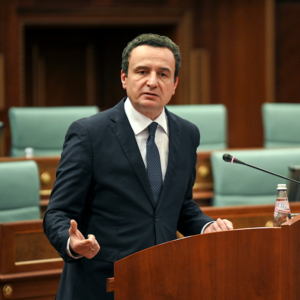
The man himself, about whom little is known, is generally referred to simply as Vegetius, a writer about military affairs and, strangely, veterinary medicine. The German-Jewish pacifist Richard Grelling took his aphorism further, saying that only actual war can secure peace and he suggested changing it to read: “Let he who desires peace, make war.” In other words, the only way to stop your enemy from defeating you is to enter into a conflict with him (or her) – and win! But if a country seriously wants peace, it needs first of all to set aside the rivalries and hatreds among the various ethnic groups that call it home. Poor old Kosovo never had a chance, its population being made up of Serbs, Albanians, Hungarians, Bosniaks, Slovaks, Bulgarians and the Gorani, a Slavic Muslim ethnic group who live in the triangle of land bordered by Kosovo, Albania, and North Macedonia. There are some 60,000 of them, it seems. There are also some Egyptian and Ashkali communities, too. Try keeping that range of ethnicities in a constant state of peaceful mutual understanding; you might as well try preaching love and friendship to a tank full of piranha fish. Peace-making there is further complicated by neighbouring states, who interfere on the side of whichever ethnicity they most favour. All of this, of course, is meat and drink to Russia, which loves to exploit built-in tensions to stir up the odd armed conflict or two, hoping to benefit from the bloodshed they’ve caused.
Kosovo has been strongly urged to preserve its multi-ethnic character ever since breaking away from Serbia in 2008, an act of independence that Serbia still does not recognise. Russian attitudes towards death and casualties are different from those in the West and there have been reports of Russia sending mobile crematoria into Ukraine because it may play better with the public than the return of dead soldiers in body bags. But the conflict between Serbia and Kosovo is centuries old, with Kosovo seen by many Serbs as the birthplace of their country. Novak Djokovic got an angry response to his clear support this year for Serbia in its ongoing row with Kosovo. He wrote a political message about Kosovo on a television camera lens as he began his battle to win the Grand Slam singles title at the French Open. He beat the American Aleksandar Kovacevic comfortably before writing “Kosovo is the ♡ of Serbia. Stop the violence” on the camera lens. That was just before he began his quest for a record 23rd men’s Grand Slam singles title by winning the French Open.
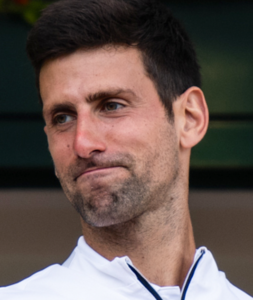
Serbia has long treasured past battles and acts of heroism. Take the Battle of Kosovo, for instance, fought on 15th June 1389, when the Serbs, under Prince Lazar Hrebeljanović, met in battle with the Ottoman Turk invasion forces of Sultan Murad I, in a confrontation that led to years of brutal Ottoman rule for the entire region. Even so, it aroused enormous national pride, which was still celebrated each year until fairly recently. It nearly led to the Ottoman forces going on to seize Vienna, too, but their heavy ordnance got bogged down in muddy conditions following a number of unusually severe storms. Otherwise, the history of Europe might have been very different. It’s part of Serbia’s proud – if frequently somewhat nationalist – history, and another reason why the Serbs don’t ever want to let Kosovo go. Lazar’s forces won the battle – sort of – but at such a high price that effective victory went to the Ottomans. In fact, most members of both armies died in the fight, including both Lazar and Murad, so for the Serbs it was a somewhat Pyrrhic victory, but as Peter Frankopan puts it in his wide-ranging book on global history, “The Earth Transformed – An Untold History”, that battle for Kosovo: “acquired totemic status in later Serbian historiography.” It certainly did and remains an obstacle to peace. At least the Serbs (and the Kosovans) know where (and why) the battle was fought. In England’s old legends there is still disagreement over the site of the legendary King Arthur’s castle, Camelot. If it existed, that is, and if he existed, too. If he did, he led the original Britons (basically the Welsh) against the Angles and Saxons who would eventually take over England. Caerleon in South Wales is one of the favourites and is probably the most likely candidate, while South Cadbury in Somerset is another. A 1500-year-old piece of slate bears an inscription suggesting it was at Tintagel in Cornwall, while Winchester holds a round table that some say was Arthur’s (although it was apparently painted in the 16th century as a piece of unconvincing propaganda for King Henry VIII).
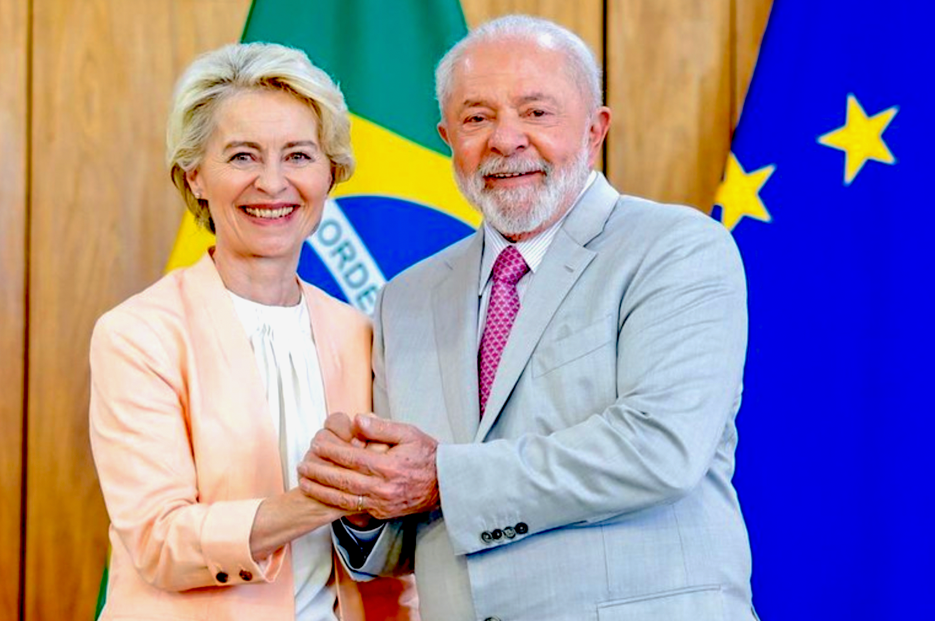
| TAKING SIDES
Even up-to-date news can be interpreted in different ways. Ukraine’s President Volodymyr Zelensky has said that his country “has united the world”, but it hasn’t. It has united the West, perhaps (in the main) but it has left much of the world dangerously divided over Russian President Vladimir Putin’s extraordinary territorial ambitions. He is now insisting that Ukrainians living in the regions his troops and mercenaries have captured must apply for Russian citizenship. If they don’t, they could be deported, which would mean leaving their homes and their country, which surely must be against international law. The longer he remains in power the more and more Putin’s policies come to resemble those of Adolf Hitler, despite his claim to have been “de-Nazifying” Ukraine. At this rate, it will be “Heil, Putin!” before very long. But although the West seems united, at least up to a point, much of the rest of the world is not. “I am struck by how we have lost the trust of the global South,” warned French President Emmanuel Macron at the Munich Security Conference, back in February. He’s right, and much of the blame must rest with the failure of so many Western countries to tackle issues such as the downside of globalisation in ways that satisfy their populations. A vote at the UN General Assembly in March condemning Russia’s invasion was won by a large margin, but, as Foreign Affairs magazine noted in its May/June issue, few non-European countries followed up with sanctions. Nobody wants to risk annoying Vlad, it seems. Some leaders, such as Luis Inácio Lula Da Silva of Brazil, for instance, have said that President Volodymyr Zelensky is as guilty of the war as Putin, even though he did not order his troops to invade someone else’s country.
Whichever way you look at it, however, Kosovo hasn’t always played the most sensible card. The problem is that the country’s ethnic Albanians, who are narrowly in the majority, and ethnic Serbs (the largest minority) don’t see eye-to-eye on virtually anything. The most recent tensions stem from municipal elections, held in April, when almost all of the 50,000 people resident in Kosovo’s four northern districts, 95% of them ethnic Serbs, boycotted the vote, resulting in four ethnic Albanians being elected as mayors, despite each of them having attracted only a few hundred votes.
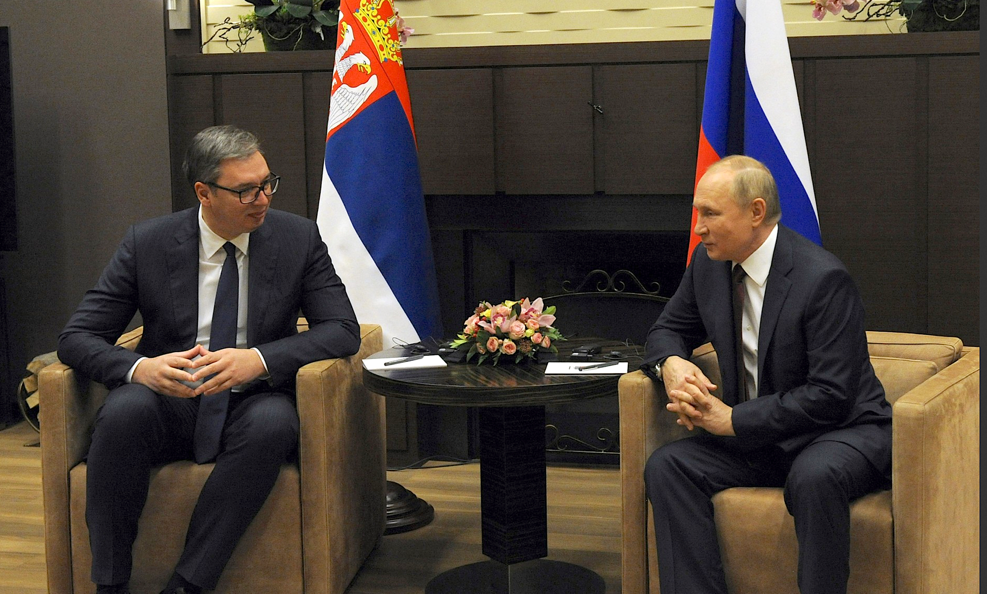
Kosovo’s prime minister, Albin Kurti, who sees himself as a defender of democracy, insisted on installing the four mayors, despite their lack of electoral support, and against the advice of the United States, the UK and the European Union. Kurti’s forces were excluded from Nato-led military exercises as a punishment for his intransigence, which he considers unfair. He is firmly opposed to Aleksander Vucic, the prime minister of Serbia, whom he sees as an autocrat and an ally of Putin. He seemed to think the new mayors could work from home, since it clearly wouldn’t be safe for them to occupy the offices they were supposed to hold. The mutual ethnic dislike led in the past to a bloody civil war in which some 13,000 people were killed, until an intervention by NATO forces brought it to an end. Even so, the Serbs still don’t recognise Kosovan independence and encourage other countries to reject it, too. In Serbia’s case, its attitude towards the independence of Kosovo will decide its possible future EU membership. Serbia wants to join but recognition of Kosovo’s independence is a condition it must meet first.
Towards the end of the First World War, the word “Balkanisation” was coined for the first time. It means the breaking up of a single but multi-ethnic state into smaller individual states, each of them representing only one ethnicity. It was first used to describe the fragmentation that resulted from the breakup of the Ottoman Empire, most especially in the Balkans. It’s perhaps not so surprising that a word meant to denote such fragmentation based on ethnicity should make reference to the Balkans. In terms of attitudes, it would seem that not much has changed there since the word was first used. It’s why, no doubt, Prime Minister Kurti was so determined to appoint the new mayors, despite their evident lack of popular support. The outcome was inevitable.
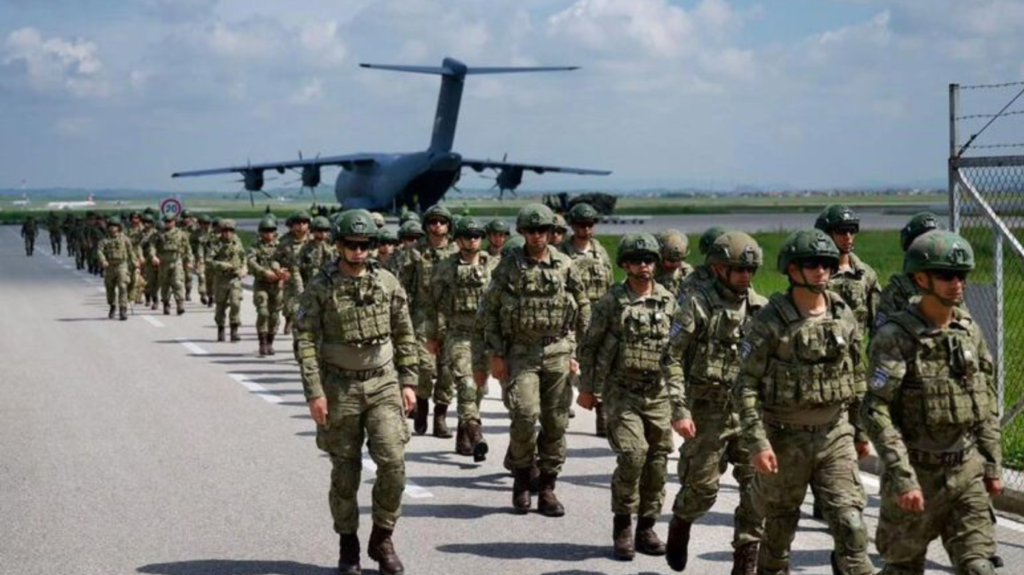
Mobs of ethnic Serbs attacked the town halls and the NATO peacekeepers sent to restore order were themselves attacked by men wearing masks. Quite a few people were injured in the ensuing violence. Many western envoys blamed Kurti for his insistence on appointing people who clearly didn’t have popular support. He claimed he was defending the rule of law and democracy (albeit a somewhat truncated form of democracy) but the mayoral rôles of people for whom hardly anyone had voted seem like a pretty thin excuse to provoke bloodshed and to intensify the underlying hatred. Kurti argues that he is taking his harsh line over the municipalities because if he doesn’t, or if he shows irresolution or weakness, Vucic will exploit it and weaken him further. The West, by and large, hopes that one day in the not-too-distant future, Vucic will accept Kosovo’s status as an independent country and all the hatred will fade. It rather sounds like wishful thinking, unless, of course, Kurti honours the “normalisation agreement” signed in 2013, under which Serbian municipalities can join together as a “community of Serbian municipalities”, as they were promised. It has never come to pass and although Kurti acknowledges that it’s a failure that must be dealt with, there would appear to be no sign of it happening any time soon.
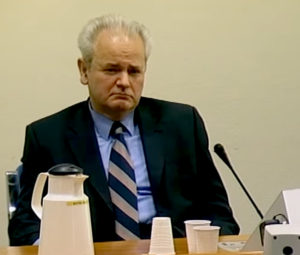
Kurti himself recalls all too clearly how, as a student activist, he was sent to prison by Slobodan Milosevic. It was the uprising against Milosevic, of course, that led to Kosovo breaking away and thus gaining its independence in 1999. Kurti insists that the Serb leadership hasn’t changed, at least in attitudes, which is how Vucic remains a close friend of Vladimir Putin. Kurti’s western allies and backers, however, are determined to avoid another confrontation, especially over such a minor matter as municipal elections. Back in April, Serb voters boycotted them. We have to wonder if they would have done if they could have seen the prospect of a stronger Serb voice in municipal affairs afterwards, or whether they would have satisfied themselves with simply waving Serb flags? On the other hand, a close relationship with Putin earns Vucic few friends in the west. Kurti’s bid to position himself as Kosovo’s answer to Volodymyr Zelenskyy is unlikely to succeed either, because the political situations in Kosovo and Ukraine are very different. Kurti is seeking a way out of the current impasse, however, promising fresh elections as long as the Serbs promise not to boycott them. He is still not addressing all the problems, however, such as the criminal gangs who take up arms against any authority with which they disagree. It’s not easy to tackle them, although doing so would be popular in some quarters, especially since similar gangs were involved in the various wars in the 1990s. He has been accused of turning a blind eye to the problems in the country’s north, however, and until all the issues are seen to be being addressed, Kurti cannot really win. He makes the point – and a fair point, too – that at least he has an opposition, which means his country is a democracy, unlike the Serb areas, where Vucic rules unopposed. Perhaps that’s why Putin likes him: he can sense that here is a leader with a fellow-feeling. Kurti can argue (and does) that Kosovo is the most democratic country in the region – once again, he’s right – but he’d be more popular in the West if he could find a way to be less confrontational.
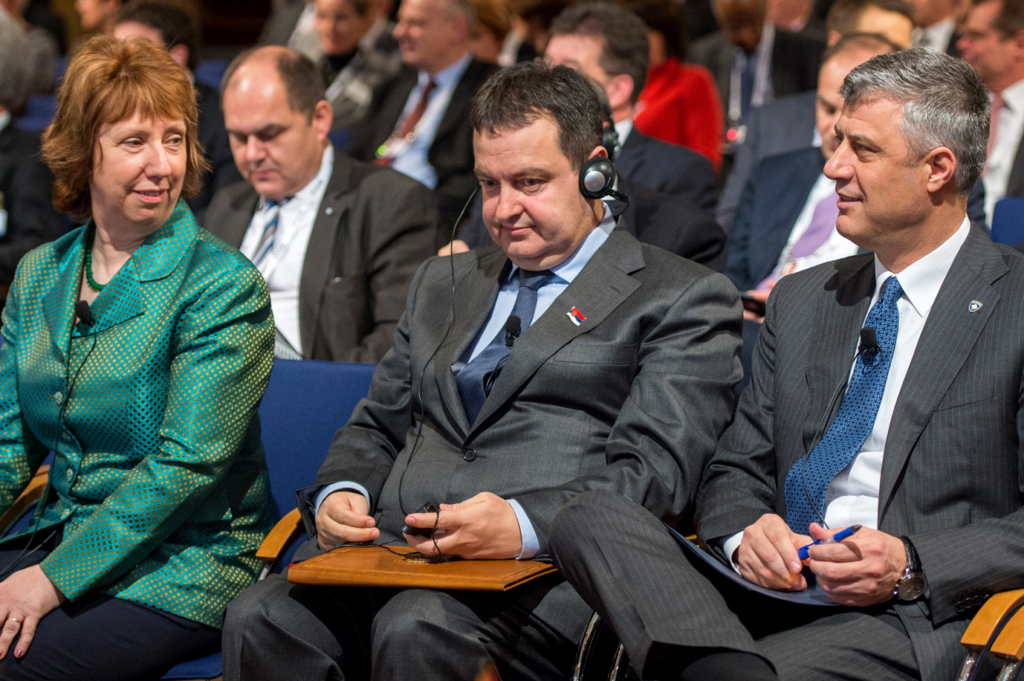
| HISTORY HAUNTS THE PRESENT DAY
Kosovo is still an international protectorate under United Nations resolution 1244 and it’s widely believed that it could not tackle a war with Serbia if one should arise. Serbia is unlikely to be in favour of a war either, though, because that would put an end to its aspirations to join the EU, as well as being seen as a sign of failure for the EU and the United States. The deal that secured an end to fighting in 1999 has actually turned it into a ‘frozen conflict’ and, as such, it is being used (albeit somewhat obliquely) by Russia as one of the justifications for its continuing war in Ukraine. What’s more, war in Kosovo would benefit neither Kosovo nor Serbia. Kosovo’s allies – the United States and the EU – do not want to see a war there. Serbia has much more powerful forces at its disposal, but Russia, always looking to seek advantage from Balkan affairs, is unlikely to gain much from an armed confrontation there. In any case, it has its hands full with Ukraine. From the point of view of Kosovo, to initiate a war with Serbia would be disastrous. Quite apart from lacking an army that’s up to the job, it would show disrespect to its principle backers, the EU and US. Kurti is already fairly unpopular in Washington and Ramush Haradinaj, who chairs the Alliance for the Future of Kosovo (as well as being a former prime minister) sees few signs of improvement. The U.S. ambassador to Pristina, Jeffrey Hovenier, said that the U.S. would “cease all efforts to assist Kosovo in gaining recognition from states that have not recognized Kosovo and in the process of integration into international organizations”. Strong stuff, indeed. As for Serbia, it received $2.9 billion (€2.71-billion) as development aid in 2020, for accession talks with the EU.
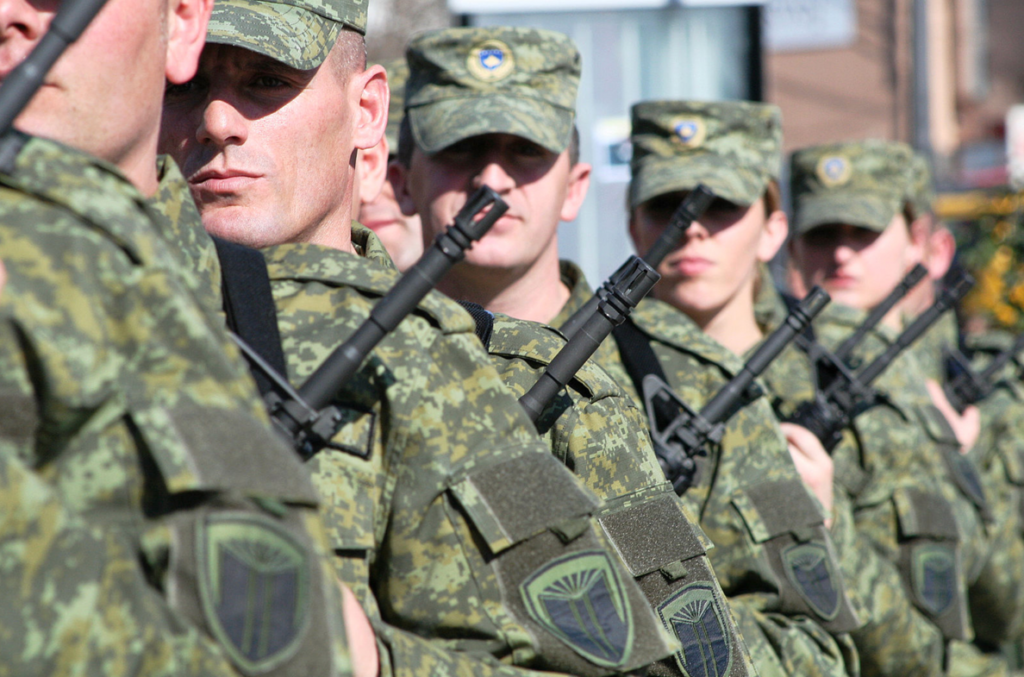
The EU is keen to diffuse the tension, and Kosovo’s Vjosa Osmani and Serbia’s Aleksandar Vucic met briefly in the presence of French President Emmanuel Macron, German Chancellor Olaf Scholz and the European Union’s foreign policy chief, Josep Borrell Fontelles, on the sidelines of a summit in Moldova. “It’s important that everyone involved does everything possible to get to a de-escalation,” said Scholz after the summit of the European Political Community.
The United States agrees: Kosovo must give its Serb citizens more autonomy, allowing them to seek membership of NATO and the EU. Based on recent experience, a bid for NATO membership would appear unlikely, although the EU could be a possibility. Something must be done too to remove the Albanian mayors Kurti installed, and who were elected in an April vote on a turn-out of just 3.5%. That is the demand of Gabriel Escobar, the US Deputy Assistant Secretary overseeing policy towards the countries of the Western Balkans as well as the Office of Press and Public Diplomacy. Escobar urged Kosovo to withdraw the police and mayors from their offices in Serb-dominated areas and then hold fresh municipal elections in which Serb citizens would participate. The President of Kosovo, Vjosa Osmani, told Reuters news agency that Kosovo could trigger fresh elections if 20% of voters sign a petition asking for them. Escobar told a press conference at the US embassy in Belgrade that Kosovo will need to move towards Euro-Atlantic integration by establishing an association of Serb municipalities, as they were once promised, although whether it will happen under this government or the next remains a moot point. Escobar pointed out that northern Kosovo’s 50,000 or so Serbs will have to ensure their participation in a new set of elections, but that may be a tricky one to achieve, since many of them view Belgrade as their capital and simply defy the government in Pristina. They still want an Association of Serb Municipalities, as foreseen in the EU-sponsored agreement of 2013, with the association theoretically working on education, healthcare, land planning and economic development. Ethnic Albanians, however, fear it could allow for the formation of a pro-Serbian mini-state.
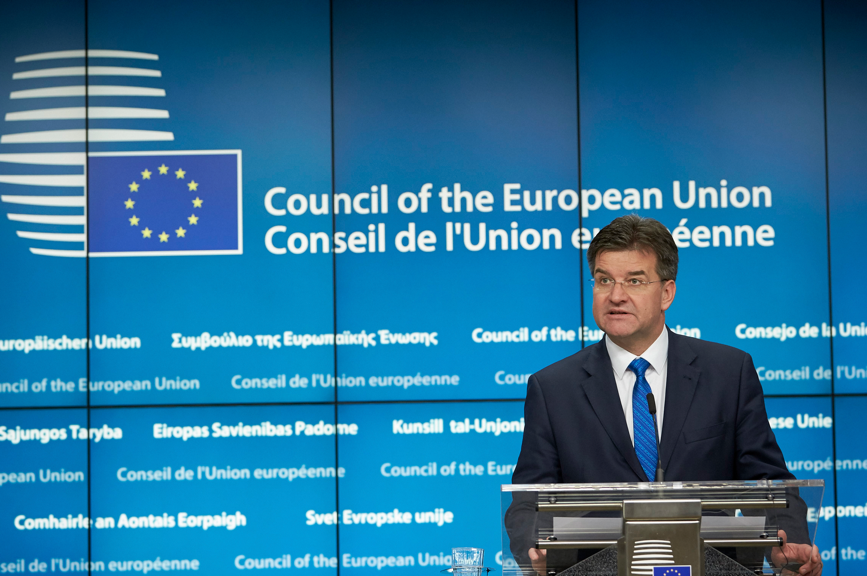
Escobar has told Prime Minister Kurti that he must respond to requests coming from the EU in order to calm the situation on the ground because unless he starts complying with the West’s demands, he could face sanctions, rather than just warnings. Escobar and EU special representative for Kosovo-Serbia dialogue, Miroslav Lajcak, met Kurti on June 5, outlining three demands aimed at calming the situation in northern Kosovo, organising new elections, and resuming the dialogue with Serbia. At the time of writing, we don’t yet know if Kurti has been listening, or if he’ll give a favourable response. Escobar and EU mediator Miroslav Lajcak have been in talks with both Serbian and Kosovan leaders on how to restart negotiations between the old foes, urging both sides to de-escalate the simmering ethnic tensions with a view (admittedly a long-term one) to both joining the EU one day. Hopefully. Now both the EU and the US have warned the Kosovo administration to back down in its stand-off with the Serbs or “face the consequences”. Kurti has told the media that such threats of possible (if unspecified) reprisals don’t achieve anything. In fact he seems to be doing quite a job himself of keeping the pot simmering.
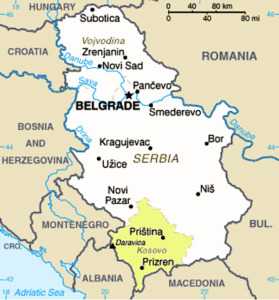
Kosovo’s prime minister recently complained that the United States and the EU are “biased against his administration” and are both too tolerant of what he called “Serbia’s authoritarian regime.” Kurti said his cabinet has a different point of view, adding that: “We insist that behaving well with an autocrat doesn’t make him behave better. On the contrary.” His words suggest he has a firm policy of total intolerance of his old enemy. He told Escobar and Lajcak “Come to us with demands, with requests of the other side” he said. Not much sign of conciliation there and seemingly no hope of a peaceful solution that keeps both sides happy. After all, there is still no sign of that 2013 “normalisation agreement”, allowing Serbian municipalities to set up their “community” being honoured any time soon, or even at all. One might be tempted to think Kurti favours warfare over peace, but in any case we should surely not be surprised that the Serbs don’t trust him. Just in case of trouble, both Kosovo and Serbia have put their troops on high alert. Of course, there’s always hope that common sense will prevail. The Prime Minister of Albania, Edi Rama, for instance, recommended at a press conference in the Albanian capital, Tirana, (as did that agreement in 2013) the formation of an association of municipalities where Serbs are in the majority. Rama argues that this would de-escalate the crisis and “normalise” Kosovo’s relations with the international community.

He told the media: “Yesterday, I forwarded to President Macron and Chancellor Scholz, the two ‘godfathers’ of the Franco-German proposal, a draft of the association, for which I informed the president of the European Council, Charles Michel, as well as the American side.” He admitted that it’s only a draft document and probably not the perfect solution, “But I assure you that it is a document of the highest international level that takes into account all the reasons for the creation of the association and definitely takes into account that the association is part of the organization of life in the Republic of Kosovo by addressing all the recommendations or conclusions of the Constitutional Court of Kosovo.” Whether or not Kurti will take any notice this time we cannot tell. He has failed to act on similar ideas in the past, like a man who wants victory, not peace. Perhaps he and the Serbs are simply following that old advice of Publius Flavius Vegetius Renatus, who wrote in the 4th century, you may recall: “Let he who desires peace, prepare for war”, with the all-new war-cry, “Ready when you are!” Vegetius would have understood.

